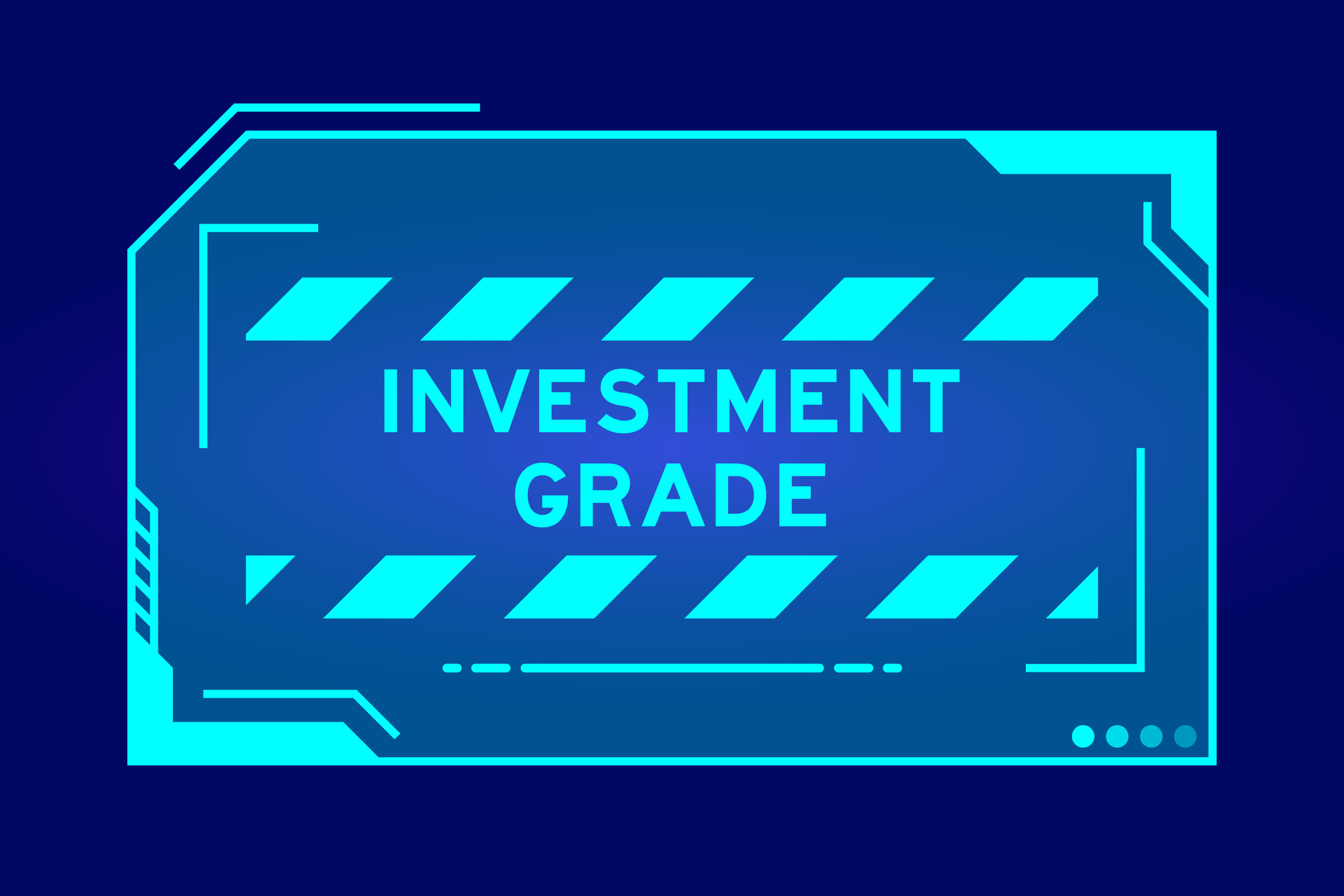The 5 Best Actively Managed Fidelity Funds to Buy and Hold
Sometimes it's best to leave the driving to the pros – and these actively managed Fidelity funds do just that, at low costs to boot.


Profit and prosper with the best of Kiplinger's advice on investing, taxes, retirement, personal finance and much more. Delivered daily. Enter your email in the box and click Sign Me Up.
You are now subscribed
Your newsletter sign-up was successful
Want to add more newsletters?

Delivered daily
Kiplinger Today
Profit and prosper with the best of Kiplinger's advice on investing, taxes, retirement, personal finance and much more delivered daily. Smart money moves start here.

Sent five days a week
Kiplinger A Step Ahead
Get practical help to make better financial decisions in your everyday life, from spending to savings on top deals.

Delivered daily
Kiplinger Closing Bell
Get today's biggest financial and investing headlines delivered to your inbox every day the U.S. stock market is open.

Sent twice a week
Kiplinger Adviser Intel
Financial pros across the country share best practices and fresh tactics to preserve and grow your wealth.

Delivered weekly
Kiplinger Tax Tips
Trim your federal and state tax bills with practical tax-planning and tax-cutting strategies.

Sent twice a week
Kiplinger Retirement Tips
Your twice-a-week guide to planning and enjoying a financially secure and richly rewarding retirement

Sent bimonthly.
Kiplinger Adviser Angle
Insights for advisers, wealth managers and other financial professionals.

Sent twice a week
Kiplinger Investing Weekly
Your twice-a-week roundup of promising stocks, funds, companies and industries you should consider, ones you should avoid, and why.

Sent weekly for six weeks
Kiplinger Invest for Retirement
Your step-by-step six-part series on how to invest for retirement, from devising a successful strategy to exactly which investments to choose.
If you're keen on having a human hand at the wheel of your mutual funds, it would be difficult to recommend a fund provider to start with ahead of Fidelity.
While a few of the fund world's other big names have made their fortunes on the back of cheap index investing, Fidelity's claim to fame is their management pedigree.
That starts with Peter Lynch, whose Fidelity Magellan (FMAGX) was the world's best mutual fund during his 13-year tenure.
And that continues to today with the likes of Will Danoff, Mark Notkin and some of the other managers you'll read about in a minute as we explore the best actively managed Fidelity funds to own for the long term.
The picks featured here rank among the best Fidelity mutual funds. They cover a variety of strategies, they all charge expenses that are at the very least below-average (if not in the bottom 20% of their Morningstar category), they're all accessible Investor-class shares, and they all have no investment minimum to get started.
Data is as of August 17. Yields on equity funds represent the trailing 12-month yield. Yields on bond funds are SEC yields, which reflect the interest earned after deducting fund expenses for the most recent 30-day period.

Fidelity Contrafund
- Fund category: Large growth
- Assets under management: $173.4 billion
- Yield: 0.1%
- Expense ratio: 0.63%, or $63 annually for every $10,000 invested
We'll start with Will Danoff's Fidelity Contrafund (FCNTX), a piece of mutual fund history that was launched in 1967.
And, at the moment, it is both Fidelity's largest actively managed mutual fund and its second-largest product overall, lagging only the nearly $700 billion Fidelity 500 Index Fund (FXAIX).
It's difficult to beat an S&P 500 fund in assets. There's no shame in it, though, considering Danoff has the edge where it really counts.
Danoff's tenure with Contrafund started in 1990, which actually predates the first S&P 500 index fund, the SPDR S&P 500 Trust ETF (SPY), which launched three years later. Since coming aboard, Danoff has delivered a roughly 10,000% total return (price plus dividends), which is about two-and-a-half times better than the index.
Contrafund's strategy, per the site, is to invest "in securities of companies whose value FMR [Fidelity's parent company, but effectively alludes to fund management] believes is not fully recognized by the public."
That sounds like value, but FCNTX is categorized as a "large growth" fund. In reality, it's neither … and both.
Management can invest in growth stocks and/or value stocks to get the job done. Currently, it's awfully growth-heavy, with the 400-stock portfolio featuring big allocations to the likes of Meta Platforms (META), Nvidia (NVDA) and Amazon.com (AMZN).
You might have noticed we said "management" instead of just "Danoff." That's because after 35 years, Danoff isn't alone – he has a couple extra pairs of hands, with Fidelity adding co-managers Jason Weiner and Asher Anolic to the fund in April 2025.
"His comanagers are particularly talented and will likely thrive running their own sleeve," writes Robby Greengold, principal at Morningstar, which gives FCNTX a Bronze Medalist rating. "Anolic and Weiner were most recently longtime collaborators at Fidelity Advisor Equity Growth (and its near-clone Fidelity Growth Discovery) and Fidelity Capital Appreciation, where they implemented an outstanding investment approach."
Lest you think it's because Danoff is losing his touch, shorter-term performance metrics will quickly dissuade you from that notion. Instead, it's likely that Fidelity is just prudently preparing for the eventual departure of its 65-year-old star manager. But for now, he's still in the captain's chair.
"Danoff solely steered more than $300 billion in assets before Fidelity recently named additional comanagers to some funds he manages," Greengold writes. "He remains firmly at the helm of all of them and retains discretion when investing his portions."

Fidelity Blue Chip Growth Fund
- Fund category: Large growth
- Assets under management: $79.8 billion
- Yield: 0.2%
- Expense ratio: 0.47%
The Fidelity Blue Chip Growth Fund (FBGRX) is a large growth fund both in categorization and intent.
Sonu Kalra, who has helmed the fund since July 2009, invests in blue chip stocks (Fidelity's definition: "well-known, well-established and well-capitalized") with above-average growth potential.
The 390-stock portfolio leans heavily toward large-cap stocks; while Kalra can and does invest in mid-cap stocks, they're a modest part of the formula, commanding less than 15% of assets right now.
The Fidelity Blue Chip Growth Fund has done exceedingly well under Kalra's direction, topping both its category average and the Morningstar benchmark index for the trailing three, five, 10 and 15 years. During those periods, FBGRX is ranked among the top 6%, 5%, 5% and 4% of competing funds, respectively.
That's not terribly surprising once you consider what Kalra's portfolio holds, which (from a sector perspective) is a lot of tech stocks.
The technology sector itself – including numerous semiconductor stocks, such as top-10 holdings Nvidia, Broadcom (AVGO) and Marvell Technology (MRVL) – makes up nearly half of assets.
The tech-esque communication services sector represents another 20% or so, as does the consumer discretionary sector, which includes tech-like companies such as Amazon and Tesla (TSLA).
"A consistent overweighting in semiconductors has helped earn the fund one of the large-growth Morningstar Category's best results over the past decade," Greengold writes in explaining the fund's Silver Medalist rating.
But he adds a word to the wise: "Fidelity Blue Chip Growth's excellent leadership and skillful execution continue to be advantages, but the strategy is vulnerable if current enthusiasm for artificial intelligence wanes or geopolitical tensions flare."

Fidelity Select Semiconductors Portfolio
- Fund category: Technology sector
- Assets under management: $23.1 billion
- Yield: N/A
- Expense ratio: 0.62%
Speaking of semiconductors and wild performance, let's look at Adam Benjamin's Fidelity Select Semiconductors Portfolio (FSELX).
FSELX is exactly what the name suggests: a tight portfolio of 56 companies representing the various parts of the semiconductor industry, including chipmakers, materials and equipment providers, electronic components, storage, and more.
The top 10 holdings are a who's who of blue-chip semiconductor stocks, including Nvidia (at a massive 27% weight) and Broadcom (at a still-large 14% weight).
If those overweights sound potentially problematic, well … they could be, though really only if their business hemorrhages to other companies not held within the fund.
Otherwise, what weighs on Nvidia's and Broadcom's shoulders likely will weigh on the rest of the portfolio, and vice versa – tailwinds such as cloud computing and artificial intelligence should prop up most of the lot.
"With valuations for many AI-related chip stocks on the high side, it will be important for companies to deliver on earnings expectations," Benjamin wrote during the fund's most recent portfolio manager Q&A back in February. "However, I continue to like the longer-term prospects for companies in the fund, driven by powerful themes that remain in play, especially the investment in infrastructure and software needed to support the growth of generative AI and the evolving data center architecture."
FSELX has been around since 1985, and it has enjoyed quite a bit of success since then. Benjamin, on the other hand, is a relatively recent hire, taking the reins in March 2020.
But so far, so good.
This Gold-rated fund hasn't just walloped its category average and benchmark index over every meaningful time period – it's among the top 1% and 2% over the trailing 15- and 10-year periods, respectively, and more germane to Benjamin's tenure, in the top 1% over the trailing three- and five-year periods, too.

Fidelity Capital & Income
- Fund category: High-yield bond
- Assets under management: $14.1 billion
- Yield: 4.8%
- Expense ratio: 0.90%
One of the best actively managed Fidelity funds – the Fidelity Capital & Income Fund (FAGIX) – is also one of its least orthodox.
FAGIX is charged with "investing in equity and debt securities, including defaulted securities, with an emphasis on lower-quality debt securities" and "investing in companies in troubled or uncertain financial condition."
That's an interesting combination. The market is stuffed with plenty of funds that hold both stocks and bonds, called "allocation" or "balanced funds" – that's not abnormal.
However, managers Mark Notkin and Brian Chang run what would otherwise be considered a conservative allocation fund (15% to 30% equity – FAGIX is currently about 25% equity), except that their 65% allocation to bonds is almost entirely made up of below-investment-grade ("junk") debt. Overall bond quality in most conservative allocation funds tends to be much higher.
So essentially, the Fidelity Capital & Income Fund is either a really junky conservative allocation fund, or a hyper-aggressive high-yield fund. Morningstar, which gives FAGIX a Silver Medalist rating, leans toward the latter.
"The strategy stands out among even the most aggressive in the high-yield bond Morningstar Category for its hefty equity stake," Morningstar analyst Max Curtin writes. "Notkin makes full use of his 22% cap on equities during periods when he believes the yield premium of high-yield bonds over stocks (the latter of which is estimated using earnings yields of broad-based market indexes like the S&P 500) to be insufficient. Meanwhile, only a select few high-yield managers allocate even 1% to equities."
Notkin, who has run the fund for more than two decades, has managed FAGIX to a stellar track record. This Fidelity fund has beaten at least 97% of its high-yield peers across all significant time periods. Some of the more recent success can be chalked up to the addition of Chang in 2019.
"This team checks all the boxes," Curtin writes. "Veteran manager Mark Notkin has been a stabilizing force, leading the strategy for over two decades. … Chang rose to portfolio management from Fidelity's high-yield research ranks, and his partnership with Notkin helps to ease concerns around the strategy's long-term succession planning."

Fidelity Investment Grade Bond Fund
- Fund category: Intermediate core bond
- Assets under management: $10.4 billion
- Yield: 3.9%
- Expense ratio: 0.44%
The Gold-rated Fidelity Investment Grade Bond Fund (FBNDX) is "everything you want in a core bond fund," raves Morningstar.
But moreso than any of Fidelity's other top actively managed funds mentioned here, FBNDX's success is truly a team effort.
This intermediate-term core bond fund is currently piloted by a five-person team: lead Michael Plage, as well as co-managers Brian Day, Sean Corcoran, Celso Munoz and Stacie Linda Powell Ware.
"Thoughtful succession planning helps to keep Fidelity Investment Grade Bond among the best core bond offerings," Morningstar's Curtin writes. "Fidelity's core and core-plus-bond management team is still best-in-class as it continues to evolve. Its most recent evolution materialized in 2024's fourth quarter when stalwart manager Jeffrey Moore retired, a departure well-telegraphed earlier in the year."
At that point, Plage, who had been around since 2016, took the reins, and Day, Munoz and Ware came aboard, joining Corcoran, who was added in 2022.
Oh, right! You probably wonder what the fund does.
Fidelity Investment Grade Bond Fund's 4,600-plus holdings are spread across a number of "core" bond categories, including U.S. Treasuries (45%), investment-grade corporates (25%), mortgage-backed securities (MBSes, 15%), and more.
It's an ideal product for getting most if not all of one's bond exposure, putting it among Fidelity's top retirement funds, too.
FBNDX has bested its category and Morningstar benchmark index over all medium- and long-term time periods, and it's among the top 10% of funds in its category over the trailing 10- and 15-year terms.
Learn more about FBNDX at the Fidelity provider site.
Related content
Profit and prosper with the best of Kiplinger's advice on investing, taxes, retirement, personal finance and much more. Delivered daily. Enter your email in the box and click Sign Me Up.
Kyle Woodley is the Editor-in-Chief of WealthUp, a site dedicated to improving the personal finances and financial literacy of people of all ages. He also writes the weekly The Weekend Tea newsletter, which covers both news and analysis about spending, saving, investing, the economy and more.
Kyle was previously the Senior Investing Editor for Kiplinger.com, and the Managing Editor for InvestorPlace.com before that. His work has appeared in several outlets, including Yahoo! Finance, MSN Money, Barchart, The Globe & Mail and the Nasdaq. He also has appeared as a guest on Fox Business Network and Money Radio, among other shows and podcasts, and he has been quoted in several outlets, including MarketWatch, Vice and Univision. He is a proud graduate of The Ohio State University, where he earned a BA in journalism.
You can check out his thoughts on the markets (and more) at @KyleWoodley.
-
 Quiz: Do You Know How to Avoid the "Medigap Trap?"
Quiz: Do You Know How to Avoid the "Medigap Trap?"Quiz Test your basic knowledge of the "Medigap Trap" in our quick quiz.
-
 5 Top Tax-Efficient Mutual Funds for Smarter Investing
5 Top Tax-Efficient Mutual Funds for Smarter InvestingMutual funds are many things, but "tax-friendly" usually isn't one of them. These are the exceptions.
-
 AI Sparks Existential Crisis for Software Stocks
AI Sparks Existential Crisis for Software StocksThe Kiplinger Letter Fears that SaaS subscription software could be rendered obsolete by artificial intelligence make investors jittery.
-
 Stocks Make More Big Up and Down Moves: Stock Market Today
Stocks Make More Big Up and Down Moves: Stock Market TodayThe impact of revolutionary technology has replaced world-changing trade policy as the major variable for markets, with mixed results for sectors and stocks.
-
 Small Caps Step Up, Tech Is Still a Drag: Stock Market Today
Small Caps Step Up, Tech Is Still a Drag: Stock Market TodayEarly strength gave way to AI skepticism again as a volatile trading week ended on another mixed note.
-
 AI Unwind Takes 2% Off the Nasdaq: Stock Market Today
AI Unwind Takes 2% Off the Nasdaq: Stock Market TodayMarkets are paying more and more attention to hyperscalers' plans to spend more and more money on artificial intelligence.
-
 Strong Jobs Report Leaves Markets Flat: Stock Market Today
Strong Jobs Report Leaves Markets Flat: Stock Market TodayInvestors, traders and speculators are taking time to weigh the latest labor market data against their hopes for lower interest rates.
-
 Dow Hits New High Ahead of January Jobs Report: Stock Market Today
Dow Hits New High Ahead of January Jobs Report: Stock Market TodayA weak reading on December retail sales was in focus ahead of Wednesday's delayed labor market data.
-
 Tech Stocks Fuel Strong Start to the Week: Stock Market Today
Tech Stocks Fuel Strong Start to the Week: Stock Market TodayThe blue-chip Dow Jones Industrial Average extended its run above 50,000 on Monday and there are plenty of catalysts to keep the 30-stock index climbing.
-
 Dow Adds 1,206 Points to Top 50,000: Stock Market Today
Dow Adds 1,206 Points to Top 50,000: Stock Market TodayThe S&P 500 and Nasdaq also had strong finishes to a volatile week, with beaten-down tech stocks outperforming.
-
 Stocks Sink With Alphabet, Bitcoin: Stock Market Today
Stocks Sink With Alphabet, Bitcoin: Stock Market TodayA dismal round of jobs data did little to lift sentiment on Thursday.

